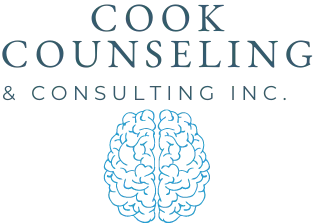While you wouldn’t necessarily think of vitamin D and depression being related in any way, research shows that there is some link. What is the role of vitamin D in depression?
Vitamin D deficiencies are surprisingly widespread, and so is depression. While you wouldn’t necessarily think of the two being related in any way, research shows that there is likely some correlation – people with depression also tend to have lower levels of Vitamin D in their blood (Wong, 2018).
The Hows & Whys of Vitamin D
Vitamin D is necessary for the body because it’s necessary for your body to absorb and retain nutrients like calcium and phosphorus, both of which are necessary for your body to grow. Vitamin D is also linked to preventing the growth of cancer cells and infections and reducing inflammation in the body.
Most foods are not rich in vitamin D, so you can’t fulfill your body’s requirements solely through your diet. Chances are your diet isn’t rich in vitamin D-rich foods as it is.
Most people get their required amount of vitamin D through sunlight exposure. When your skin is exposed to sunlight, it manufactures an active form of vitamin D. If you don’t go out into the sun very often, you’re probably not getting enough of it.
So, what is the role of vitamin D in depression?
Vitamin D and Depression
Studies around it have shown that people with depression often tend to have vitamin D deficiencies as well, and vice versa. People at high risk of depression are also likely to have a vitamin D deficiency.
However, while there is a correlation, there is not enough evidence to prove causation.
One reason for this link may be that symptoms of depression include social withdrawal and isolation. This often means that an individual is spending less time outside than they would otherwise, which could result in less exposure to sunlight and thus result in a vitamin D deficiency. This is especially true if their diet does not include appropriate amounts of the required nutrients.
Another symptom of depression is the lack of care an individual has for oneself. When not taking care of themselves, individuals may not eat a balanced diet or take the supplements they need. On top of the isolation (which often worsens their symptoms!), having an insufficient amount of vitamin D in their diet would mean that people with depression will have less vitamin D than they should.
Research around this shows that while vitamin D does have mood-altering effects, we don’t yet know what the reason is. Further, it was found that vitamin D supplements at 2,000 IUs per day can help with reducing the symptoms of depression, though the certainty around it is too low to be sure (Khan, 2022).
References
Khan, B., Shafiq, H., Abbas, S. et al. Vitamin D status and its correlation to depression. Ann Gen Psychiatry 21, 32 (2022). https://doi.org/10.1186/s12991-022-00406-1
Wong, S. K., Chin, K. Y., & Ima-Nirwana, S. (2018). Vitamin D and Depression: The Evidence from an Indirect Clue to Treatment Strategy. Current drug targets, 19(8), 888–897. https://doi.org/10.2174/1389450118666170913161030

